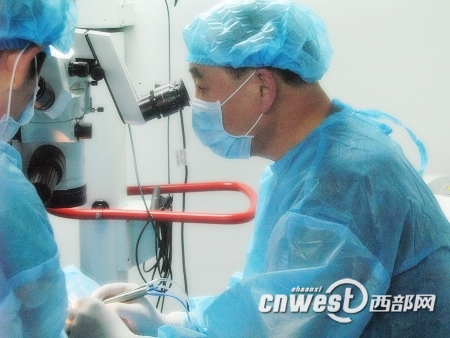Chinese doctors on Friday said they are making efforts to use artificial crystal implantation to help improve eyesight for pandas as they do with humans.
 |
|
Xiaoming is a male wild panda discovered by farmers in the mountains in Taibai County, Shaanxi, in March, 2007. The panda was completely blind in his right eye and had a cataract on the left eye.
|
Meng Yong'an, a prestigious Chinese eye surgeon, said on Friday that a follow-up examination of an elderly giant panda Xiaoming proved the cataract removal surgery that he did on Dec. 20 last year successful. He did not implant artificial crystal for the panda during that surgery.
Meng, a consultant for the World Cataract Foundation, has helped more than 30,000 patients regain sight. He said it was the first time for him to carry out a surgery on a panda.
He said despite the successful cataract removal process, his attempt to implant an artificial crystal in Xiaoming's eye failed. The procedure is commonly used to restore sight in humans.
"It seemed pandas need an artificial crystal tailor-made for them. We have contacted a foreign supplier to make the panda lense," said Meng, head of the Xi'an Gucheng Eye Hospital.
He said he has collected necessary data for the anticipating implantation from Xiaoming, but the lense production needs more comprehensive data on panda eyes.
 |
|
Meng Yong'an, head of the Xi'an Gucheng Eye Hospital, did the cataract removal surgery for an elderly giant panda Xiaoming on Dec. 20, 2008.
|
The Shaanxi Research Center of Rare Wild Animal Rescue and Breeding, where Xiaoming lives, said it will carry out eye examinations on all 18 pandas housed in the center this spring to help collect the data for the development of the lense.